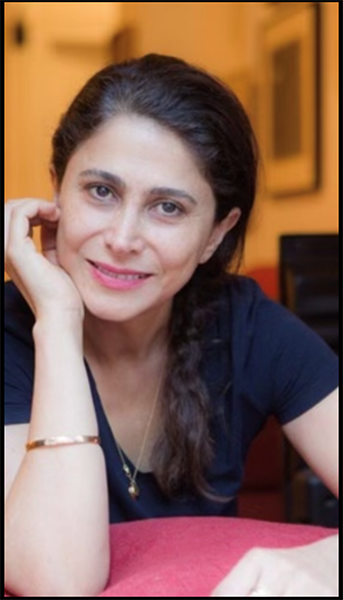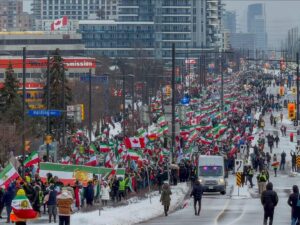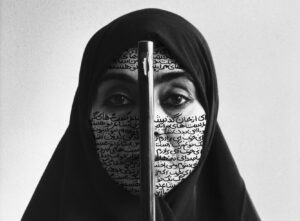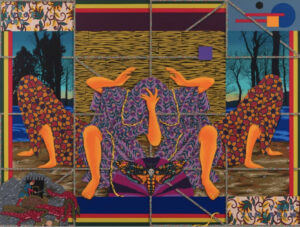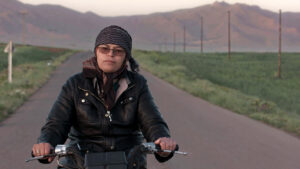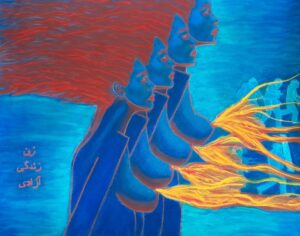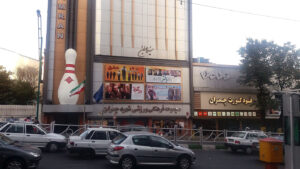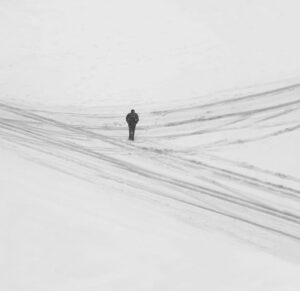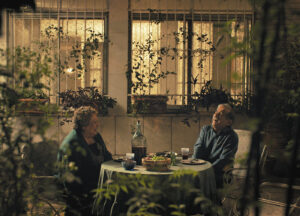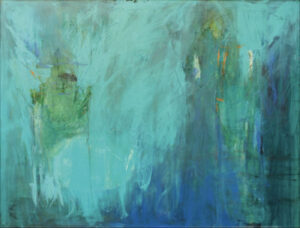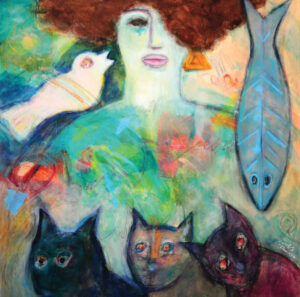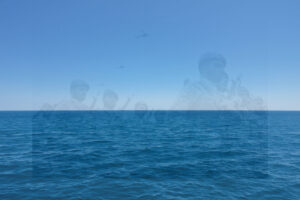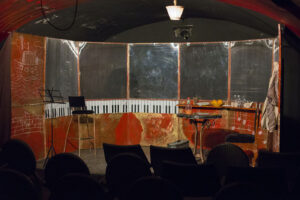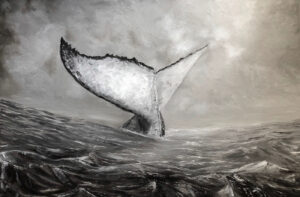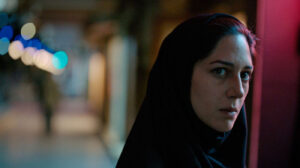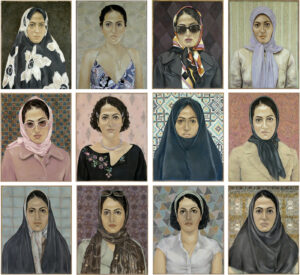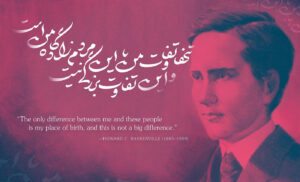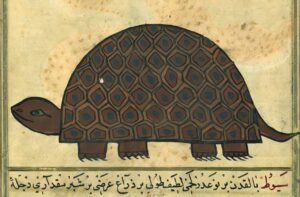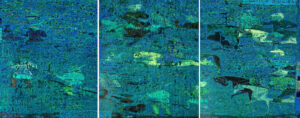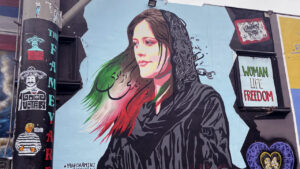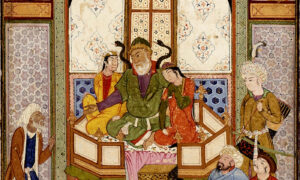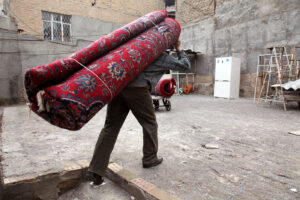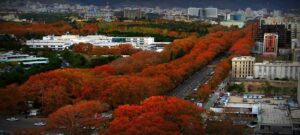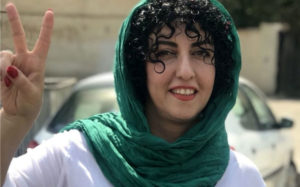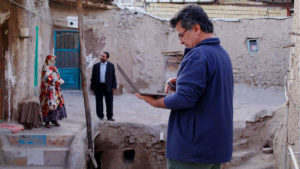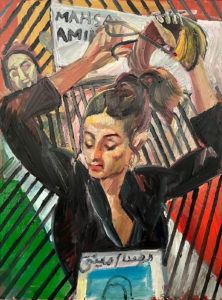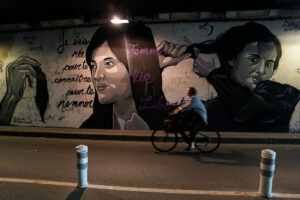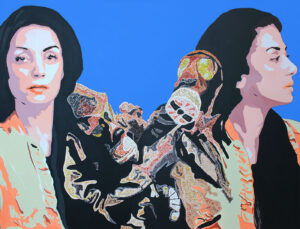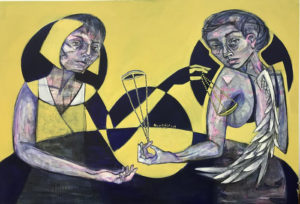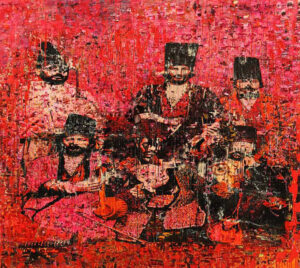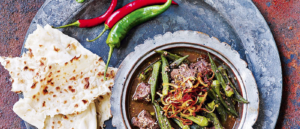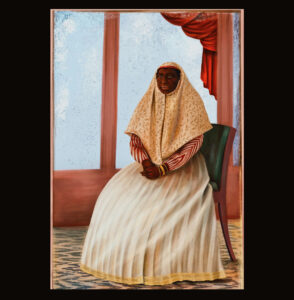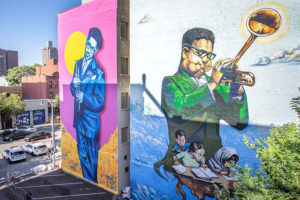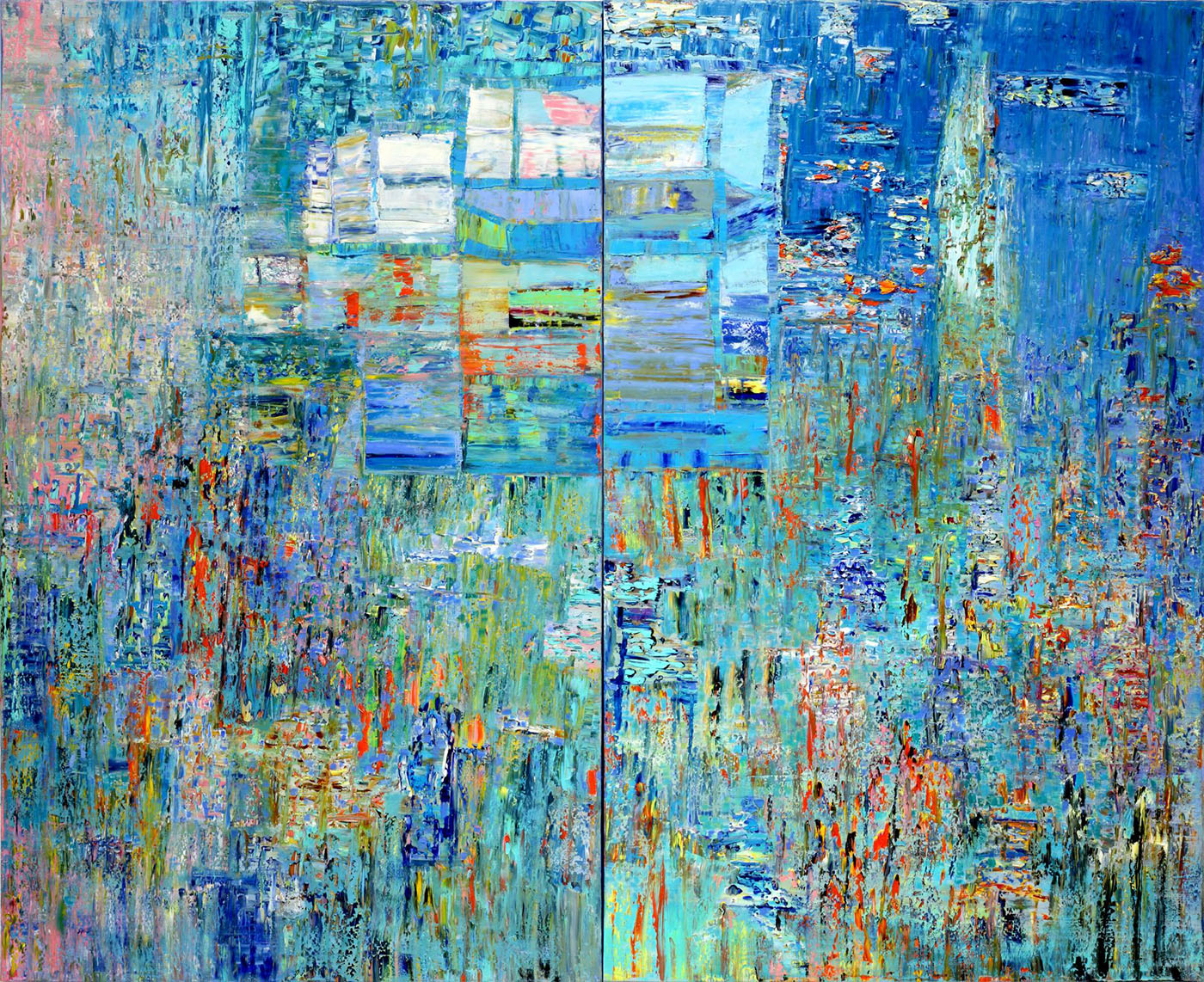
Maryam Mortaz
The first four years of my life I spent more time bedridden in hospitals than at home. The day I was finally brought back to stay, the scent of rice was the first thing that greeted us at the gate while my father was still fussing with the outside lock. Inside the courtyard even the neighborhood cats seemed stilled with that familiar aroma wafting over the shallow pool. I remained wrapped over my father’s shoulders, charmed with the possibility of life at last, while my mother stood in the terrace watching us. Her belly full again, this time with my little sister, her long black hair washed majestically over her expanding curves.
The aroma of kateh, the Persian “simple rice” or “quick rice” cannot be mistaken for anything else. Decades later I still recall that moment in our courtyard as if the entire southern coast of the Caspian Sea, where much of Iran’s rice fields lay, had been put into a huge pot for steaming. My father and his family were Georgians who, like a lot of people from the Soviet Caucuses had eventually migrated to Iran and stayed. Rice, or the kateh version of rice was in my father’s blood. He’d been raised on that southern Caspian coast next to the paddies where rice with just about everything is a way of life.
I wanted to head straight for the kitchen; instead they placed me inside a crib with tall white railings. “Sleep is beneficial,” my father said. He only spoke textbook-learned classical Persian that they’d taught him in school, since in his household the language of everyday life was Georgian, Russian and Azeri Turkish, with smatterings of the Gilaki dialect of the southwestern Caspian. From behind the crib’s rails I could see a chubby little boy, my younger brother, excitedly trying to crawl up to the crib. I imagined he had eaten kateh everyday while I’d been in the hospital. Even to my four-year-old mind, that rice’s perfume was nostalgic and mysterious. It was a scent I’d been around before, though not nearly as much as I wanted to. Now, in this house, the kateh aroma seemed to permeate the very walls, and certainly the white baby blanket beside me in the crib.
Kateh, as opposed to the more involved rice making rituals of Iranians, was a source of constant squabble between my mother and father. As a man of the Caspian regions, kateh was what my father preferred. But my mother hailed from central Iran, was decidedly on the side of chelo, the far more intricate Persian style of cooking rice that goes with traditional stews and kebabs and calls for stopping the process halfway in order to rinse your semi-cooked grain, rinsing it, pouring oil into the bottom of the pot and mixing it with some saffron before placing the rice back in the pot and letting it cook all the way this time. This was the rice of restaurants and dinner parties. The rice of kings. A rice that is not “wet” or bunched together in little balls, but rather grows in size when cooked properly so that each granule is distinct from the other.
My father would of course have none of it. He’d say to my mother, “Waste is not proper. All the vitamin and taste escape in the manner of your cooking the rice, Madam.”
No two people could have been more unlike than my mother and father. In fact, you could say that their differences on the subject of rice pretty much summed up the entirety of their relationship.
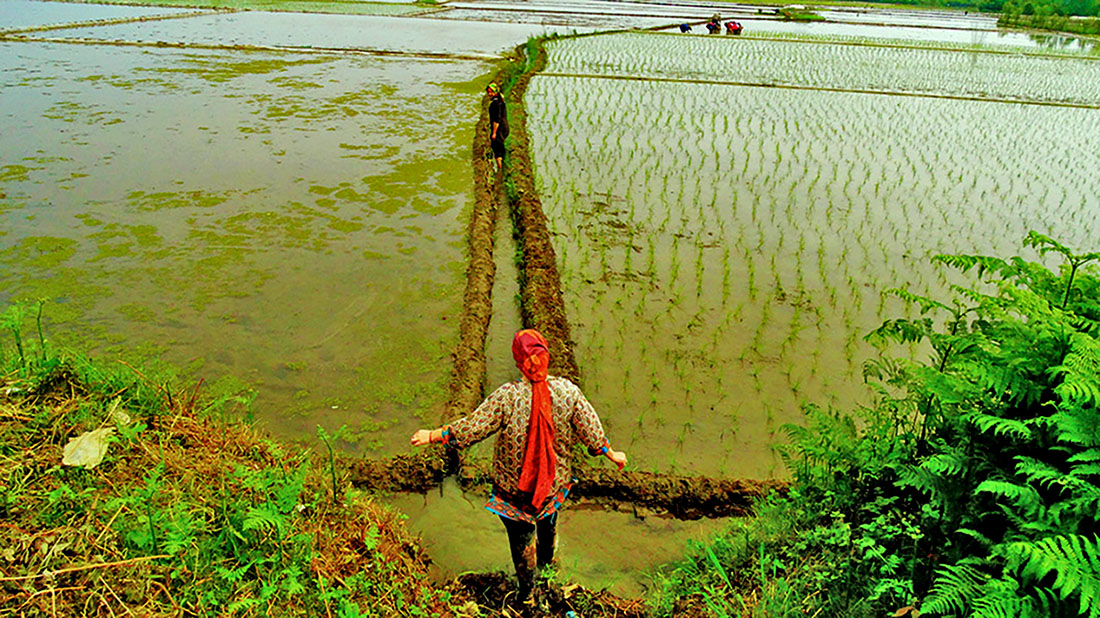
It’s the very simplicity of kateh and yet its special charm that makes it so beloved to many a connoisseur in Iran. Bring any array of rice-oriented dishes from around the world — India, Spain, China, West Africa — and you are unlikely to remotely impress a Persian in comparison not to kateh but the royal chelo. Not only the making of chelo is a commitment of time and a show of nimbleness with rice, it is — ironically — the lesser part of what goes into making a fully realized Persian meal, any meal, involving either an elaborate khoresht (stew) or a multilayered polo (solo or dry rice dish). At the same time since the art of Persian cooking tends toward precision in taste rather than spiciness, any day spent in the kitchen can be a tight-rope act of sorts, where the slightest miscue will ruin perfection and thereby defeat the dish in question. There is no hiding behind spice in Persian cuisine, and the almost mystical chelo is an integral part of the whole obsessive process. Yet while chelo reigns supreme, kateh holds its own for plenty of rice lovers on the Iranian plateau. With chelo, if you know what you are doing, you can get creative; you can, for instance, make the crunchy bottom of the pot, the tah
dig, which you will then turn over to display a perfectly rounded, cake-like rice realization, out of potatoes or flat bread. And the crispy, slightly burned tadig itself can also be a source of endless comments and assessments.
Kateh suffers none of these contests and the one-upmanship. The rice is allowed to simply boil and steam without interruption. A little oil and salt is all that is required. And, needless to say, an understanding, through practice, of what it takes to turn out the perfect kateh — soft but not overly mushy, tasty but unassuming.
My father’s love of kateh translated into his eating it around the clock. He’d eat it with broken bits of feta cheese thrown in or with raw grated garlic, or else with anchovies or carp. He could eat fried eggs and kateh for breakfast, kateh and salted fish for lunch, and kateh and chickpeas for dinner. If my mother refused to make kateh, he’d make it himself — always in a large copper pot and then eat it immediately while it was piping hot. I often asked him if his tongue didn’t burn eating the kateh so scalding. He’d only look at me with his bright blue Georgian eyes and smile, silently letting me know that I was still a kid and when I grew up there would be other ways I’d get burned but not from eating rice.
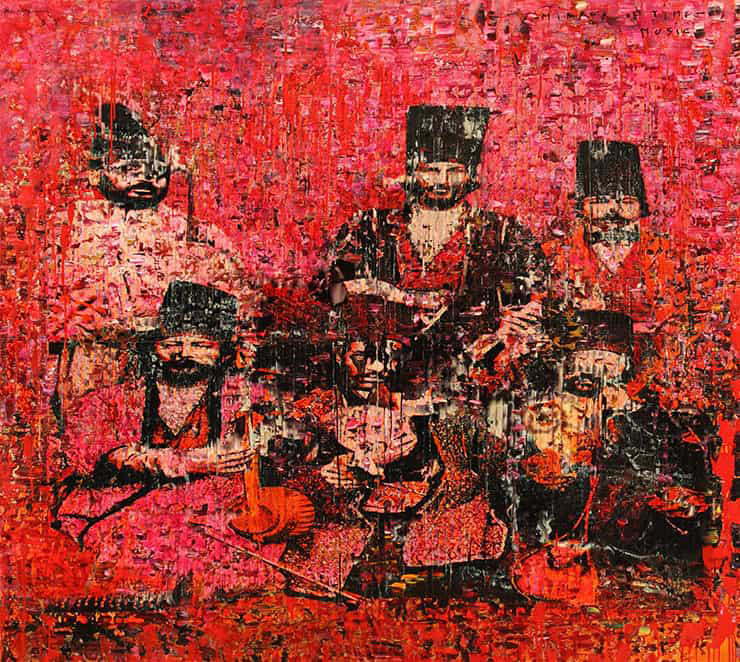
I don’t know how I managed finally to get myself out of the crib that first day back home and into the kitchen. But I did. The kitchen was as white as the hospital I’d spent so much time in and where my father also happened to work. It would be a few years still before I found out he was an anesthesiologist. He was just my father that day, the blue-eyed father with the odd way of talking who had finally brought me home and who loved his kateh. I remember him sitting behind the white metal table in the kitchen not wearing his doctor’s white coat, but rather a button-down blue shirt.
Seeing me in the kitchen, he said, “It happens that hunger has come upon you?”
My mother walked in behind me and wanted to take me back to the room. Her swollen belly came around and was now blocking my view of the copper pot. My father saw what I was after. He got up and came and picked me up so I could look into the frothy rice inside. Cream colored bubbles grew large and burst and more took their place. It was as if someone were playing drums in the distance or rain was hammering on the roof. In the middle of the pot twirled a golden hued pool that gave off a buttery smell. My face quickly collected moisture from the steam. I turned to my father whose high and slightly creased forehead was also wet with moisture. We stood there quite still, even my mother, and after a while the bubbles seemed to simmer down and the rice became plain to see once most of the water had vaporized. Now, with his free hand my father placed the lid on the pot. The art of the kateh lies in this very moment, when to know to put the lid on and let the rice find its right texture with the remaining steam.
I looked on as slivers of steam still got past the lid and rose toward the ceiling. Rice was life. And I had literally escaped the claws of death for having drunk some bad water I don’t know when. It was us — me and my father and my pregnant mother with her magical black hair right out of the storybooks, and I took in that moment over the gas stove while I suspected we all waited for Genie to appear from somewhere inside the sizzling copper pot bearing his gift of kateh rice for the entire family.
Translated from the Persian by Salar Abdoh.



